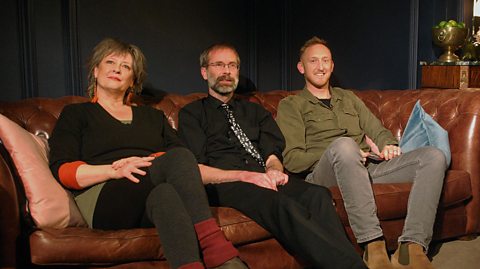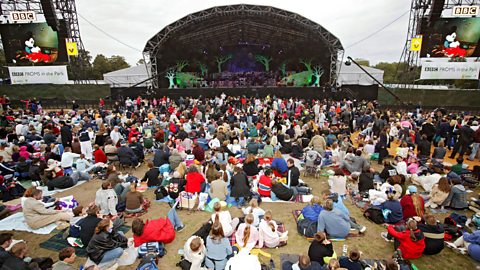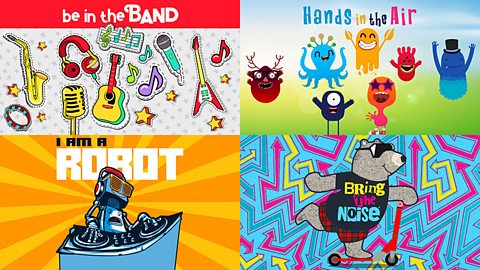
If you don't play an instrument or read music then teaching the subject can feel like a completely different language.
Here are some tips on how to get started teaching music to young primary school children?
Bring The Noise panel: Andy Smith (musician and educator), Jimmy Rotherham (primary school music co-ordinator) and Lindsay Ibbotson (project lead for First Thing Music) answered some of the common questions teachers have.
1. Keep it simple
"You don't need to have a huge repertoire of stuff", when starting out teaching music, Lindsay Ibbotson advises.
Starting with small sections is the best way to build confidence and rapport, "Keep it short and simple, and be prepared to repeat it," she said.
"If you start with one little song, a song that lasts ten seconds, you can concentrate on the children and the children will give it back to you in spades."
"Don't include any musical terminology or things like that at this early stage," Andy Smith said.
"It's more about how a child would learn how to speak. For example, they might copy the words that they hear from the people around them.
"Then they experiment with those words and after that comes the understanding of sentence structure and literacy.
"It's all about listening, then exploring and play."

2. Try different methods to get children engaged
Teaching music can give the space for children to try something new in the classroom and Jimmy Rotherham advises that playing a game is a good way to start.
"I think games just reverse that traditional dynamic of the music teacher saying 'Right, everyone sing this song' and then say 'That wasn't good enough you need to do it again' and they react 'We've just sang this twelve times do we need to sing it again?'", he said.
"Doing games just reverses that immediately so you get the children going 'Can we do that again?'"
3. Don't over worry about Ofsted or assessments
Don't be frightened of the assessment process, it's not too formal or exacting as Andy Smith explained, "It's not like assessing as you would if you were doing a grade 5 piano exam or something like that."
"Ofsted want music to be practical and they want you to show progression over time," Jimmy Rotherham said.
"Assessment should inform and improve your teaching"
"So, as long as you're doing that, it's fine for you to do a video once a term and base your planning on that."
4. Try not to be too self conscious
"Children aren't expecting you to recite an aria or sing the latest Ed Sheeran track," Andy Smith said.
"Again, keeping it really simple and age appropriate [is key]," he explained.
"It might be that you're just singing instructions at first, just using one pitch not changing it or anything like that.
"And then you might change the pitch as you develop more confidence."
5. Don't let bad experiences you might have had impact on how you teach
"I think if we taught language in the same way, very few people would speak and we'd only let people with a huge vocabulary actually speak," Jimmy Rotherham said.
"If we can do it in a child friendly way, every single child would be able to do it"
"We shouldn't let our bad experiences of music lessons cloud how we feel and the opportunities we give to these children."
Music Education Hubs
Find out about local , their locations and how they can help you.
More from Bring The Noise
Five reasons everyone should have music in their lives
Most of us come across music pretty much every day but why is it so important?

Play and explore songs
Use the children's music player to discover the different elements of songs.
